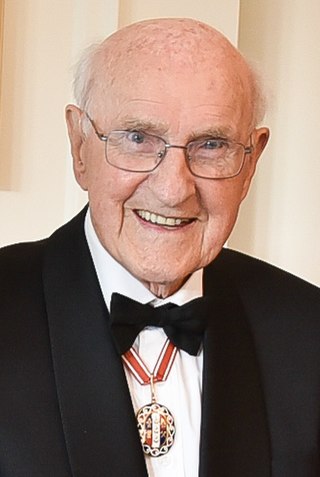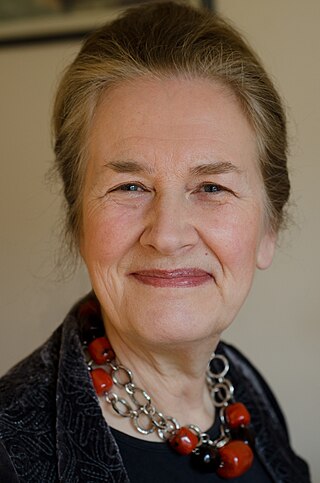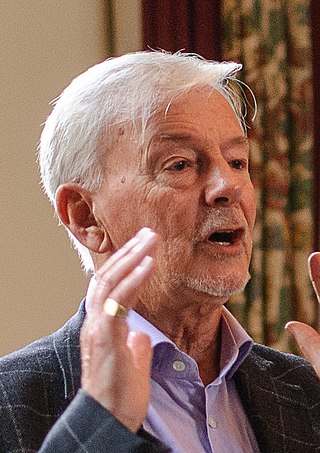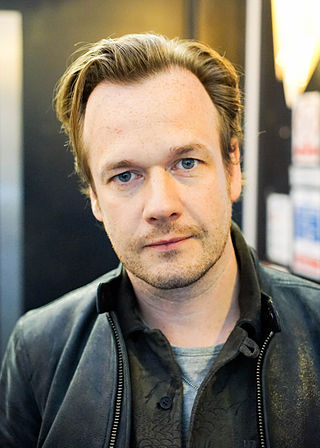
Richard Granville Swinburne is an English philosopher. He is an Emeritus Professor of Philosophy at the University of Oxford. Over the last 50 years, Swinburne has been a proponent of philosophical arguments for the existence of God. His philosophical contributions are primarily in the philosophy of religion and philosophy of science. He aroused much discussion with his early work in the philosophy of religion, a trilogy of books consisting of The Coherence of Theism, The Existence of God, and Faith and Reason.

John Arthur Thomas Robinson was an English New Testament scholar, author and the Anglican Bishop of Woolwich. He was a lecturer at Trinity College, Cambridge, and later Dean of Trinity College until his death in 1983 from cancer. Robinson was considered a major force in New Testament studies and in shaping liberal Christian theology. Along with the Harvard theologian Harvey Cox, he spearheaded the field of secular theology and, like William Barclay, was a believer in universal salvation.

Universities and Colleges Christian Fellowship is a UK-based charity that was founded in 1928 as the Inter-Varsity Fellowship of Evangelical Unions. The UCCF endorses a conservative evangelical form of Christian theology.
Postliberal theology is a Christian theological movement that focuses on a narrative presentation of the Christian faith as regulative for the development of a coherent systematic theology. Thus, Christianity is an overarching story, with its own embedded culture, grammar, and practices, which can be understood only with reference to Christianity's own internal logic.

John Boswell Cobb Jr. is an American theologian, philosopher, and environmentalist. He is often regarded as the preeminent scholar in the field of process philosophy and process theology, the school of thought associated with the philosophy of Alfred North Whitehead. Cobb is the author of more than fifty books. In 2014, Cobb was elected to the prestigious American Academy of Arts and Sciences.
Ed Parish Sanders was an American New Testament scholar and a principal proponent of the "New Perspective on Paul". He was a major scholar in the scholarship on the historical Jesus and contributed to the view that Jesus was part of a renewal movement within Judaism. Sanders identified himself as a "liberal, modern, secularized Protestant" in his book Jesus and Judaism; fellow scholar John P. Meier called him a postliberal Protestant. He was Arts and Sciences Professor of Religion at Duke University, North Carolina from 1990 until his retirement in 2005.

Sir Lloyd George Geering is a New Zealand theologian who faced charges of heresy in 1967 for teaching that the Bible's record of Jesus' death and resurrection is not true. He considers Christian and Muslim fundamentalism to be "social evils". Geering is emeritus professor of religious studies at Victoria University of Wellington. In 2007, he was appointed a Member of the Order of New Zealand, New Zealand's highest civilian honour, limited to 20 living people. Geering turned 100 in February 2018.

Alasdair John Milbank is an English Anglo-Catholic theologian and is an Emeritus Professor in the Department of Theology and Religious Studies at the University of Nottingham, where he is President of the Centre of Theology and Philosophy. Milbank previously taught at the University of Virginia and before that at the University of Cambridge and the University of Lancaster. He is also chairman of the trustees of the think tank ResPublica.

Margaret Daphne Hampson is an English theologian. Educated at Oxford and at Harvard, she held a personal Chair in "Post-Christian Thought" at the University of St Andrews. Hampson's distinctive theological position has both gained her notoriety and been widely influential. Holding that Christianity is neither true nor moral, she believes the overcoming of patriarchal religion to be fundamental to human emancipation. As a theologian Hampson has always held to a "realist" position, in which the understanding of "that which is God" is based in human religious experience.

The Sea of Faith Network is an organisation with the stated aim to explore and promote religious faith as a human creation.

Keith Ward is an English philosopher and theologian. He is a fellow of the British Academy and a priest of the Church of England. He was a canon of Christ Church, Oxford, until 2003. Comparative theology and the relationship between science and religion are two of his main topics of interest.
Nancey Murphy is an American philosopher and theologian who is Professor of Christian Philosophy at Fuller Theological Seminary, Pasadena, CA. She received the B.A. from Creighton University in 1973, the Ph.D. from University of California, Berkeley in 1980, and the Th.D. from the Graduate Theological Union (theology) in 1987.
Radical orthodoxy is a Christian theological and philosophical school of thought which makes use of postmodern philosophy to reject the paradigm of modernity. The movement was founded by John Milbank and others and takes its name from the title of a collection of essays published by Routledge in 1999: Radical Orthodoxy: A New Theology, edited by Milbank, Catherine Pickstock, and Graham Ward. Although the principal founders of the movement are Anglicans, radical orthodoxy includes theologians from a number of ecclesial traditions.

Peter Rollins is a Northern Irish writer, public speaker, philosopher, producer and theologian.

John Macquarrie (1919–2007) was a Scottish-born theologian, philosopher and Anglican priest. He was the author of Principles of Christian Theology (1966) and Jesus Christ in Modern Thought (1991). Timothy Bradshaw, writing in the Handbook of Anglican Theologians, described Macquarrie as "unquestionably Anglicanism's most distinguished systematic theologian in the second half of the 20th century."
Secular theology is a term applied to theological positions influenced by humanism and secularism, rejecting supernatural metaphysical positions related to the nature of God. Secular theology can accommodate a belief in God, like many nature religions, but as residing in this world and not separately from it.
David Ananda Hart is a British radical theologian, Anglican priest and a practicing Hindu.
Graham John Ward is an English theologian and Anglican priest who has been Regius Professor of Divinity at the University of Oxford since 2012.
Christian atheism is a form of atheism that adopts the teachings, narratives, symbols, practices, or communities associated with Christianity without accepting the literal existence of God.
Donald Mackenzie MacKinnon (1913–1994) was a Scottish philosopher and theologian.










